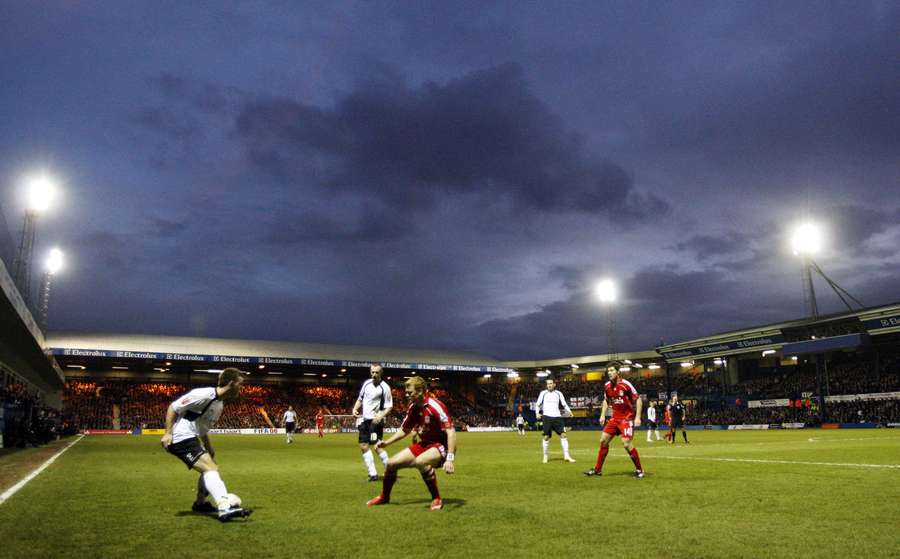Derby to Pompey: Most notable points deductions in English football

While penalties are commonplace, some instances stand out for their unprecedented severity and knock-on effects, reshaping the fate of clubs and altering the course of competitions.
Amid Everton's recent 10-point deduction for breaching the Premier League's Financial Fair Play rules, Flashscore takes a look at a handful of examples from the English game that left long-lasting marks on the clubs in question.
Luton Town (2008)
In 2008, Luton Town Football Club, then competing in the Football League One, faced dire consequences due to financial irregularities.
The club was first hit with a 10-point deduction in 2007/08 for falling into administration, which was enough to see them relegated to League Two.

The following season in 2008/09, Luton were hit with a staggering 30-point deduction, a record at the time, stemming from multiple breaches of regulations, including improper payments to agents and financial misconduct.
This unprecedented penalty saw Luton plummet to the foot of the league, facing an insurmountable task to avoid relegation. Despite picking up 13 wins and 17 draws throughout the campaign, they finished bottom with 26 points.
It meant the club dropped out of the football league and into the National League for the start of the 2009/10 season - making their storied rise up to the Premier League this season all the more remarkable.
AFC Bournemouth (2008)
The same year witnessed another significant points deduction, this time affecting AFC Bournemouth.
The club incurred a severe 17-point penalty for financial mismanagement, specifically entering administration while facing substantial debts.
This deduction drastically altered Bournemouth's league standing, pushing them from mid-table to the brink of relegation.
Bournemouth displayed resilience and fought valiantly, and in spite of the points deduction they escaped relegation from the football league with 46 points, going on to earn promotion back to League One the following year.
Portsmouth (2010)
Portsmouth Football Club's tumultuous journey in 2010 epitomised the repercussions of financial turmoil.
Despite winning the FA Cup in 2008, Pompey were plagued by immense debts - reportedly around £135 million - and ownership issues.

Amidst a financial crisis leaving them facing liquidation, Portsmouth were handed a monumental nine-point deduction while already languishing in the Premier League. It left them 17 points from safety with nine league games remaining.
The penalty compounded the club's struggles, contributing significantly to their eventual relegation from the top flight.
It went on to further fuel Portsmouth's decline from the heights of the Premier League to the depths of financial turmoil and subsequent lower divisions highlighted the profound impact of points deductions on a club's trajectory. They spent some time in League Two but currently find themselves competing at the top of League One.
Birmingham City (2019)
In a more recent case, Birmingham City Football Club faced a severe reckoning in 2019.
The club was sanctioned with a nine-point deduction for breaching profitability and sustainability rules in the English Football League (EFL).
This deduction, while not as historically colossal as others, significantly impacted Birmingham City's status in the Championship.
The penalty injected immense pressure on the club, jeopardising their Championship status.
Despite the setback, the team showcased remarkable resilience, narrowly avoiding relegation in a tense finale to the season.
Derby County (2021)
An even more recent addition to the annals of significant points deductions came in 2021 when Derby County Football Club found itself embroiled in financial strife.
The club was handed a monumental 21-point deduction due to accounting irregularities that breached league regulations - they were reported to owe £29.3 million to HMRC.

This unprecedented deduction plunged Derby County into a perilous position in the Championship, facing a daunting uphill battle to retain their status in the division.
The penalty sparked fervent discussions about the fairness and impact of such severe deductions on a club's competitive prospects.
Despite the best efforts of then-manager Wayne Rooney -working with no budget and a shoestring side of free transfers - the club narrowly missed out on staying up at the tail-end of the season and were relegated to League One for the first time since 1986.

